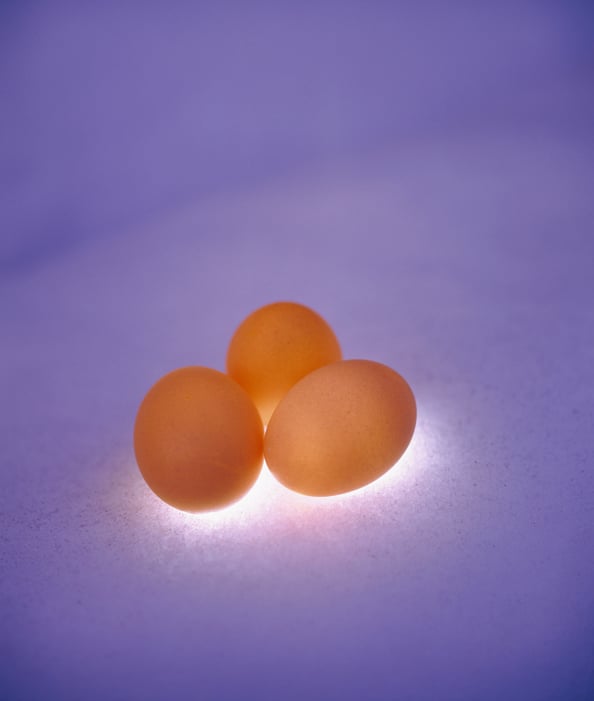Facebook and Apple have already announced plans to finance egg freezing for employees, Emirates Woman investigates the headlines the procedures and the practice in the UAE.
Silicone Valley recently made headlines when two tech conglomerates (Apple and Facebook) announced the latest perk in the long waged employee benefits war: egg freezing. The message, it seems, is that female employees can relax into their careers, and put motherhood on ice. But this fertility treatment, which is similar to the controversial IVF therapy, is still in its infancy. Some say that it’s unethical to give false hope, others that women shouldn’t mess with mother nature, and many that it’s another example of sexism.
However for those who, for a myriad reasons, don’t have children before the often recommended age of 35, the news is met with rather more enthusiasm. Career-driven thirty-something Stephanie Stark, author of Egg Freezing For Every Woman, froze her eggs in the hope she will have a child once she has achieved her professional goals. “I was surprised to learn of how many of my single girlfriends were actually interested in freezing their eggs as well,” says Stephanie.
As the veil of mystery begins to lift, and women become more open to discuss reproductive issues, it has become apparent just how widespread these concerns are. Dr David Roberts, Group Medical Director at Bourn Hall Clinic, says that he has noticed an increase in women seeking the procedure in order to delay the biological clock. “Egg freezing is often sought by women who have reached their thirties and have not yet married or wish to defer pregnancy until they’re older,” he explains.
Brigitte Mueller was all too aware of the clichéd sound of her fertility – the ticking biological clock. “At age 40, I found myself single again,” she explains. “The panic set in.” When Brigitte recently approached a fertility doctor, he frankly told her that her best chance of having a biological child was to get pregnant now. “I just wasn’t ready for that,” she says, explaining that she went on to freeze 40 eggs. “It’s empowering to have such an option when you’re not ready to have a child and your fertile years are ticking away.”
As this is relatively new ground, women who choose to freeze their eggs aren’t guaranteed a future full of children. In fact, the reality is far from it. Women below 35 are reported to have around a 50 per cent chance at frozen eggs resulting in pregnancy. From ages 36 to 38 this drops to below 35 per cent. Above that it starts to get unclear – advice from doctors varies from “around 20 per cent” to “don’t even bother”.
Of course, statistics vary country-to-country. But it’s also extremely important to research specific clinics. Go with a centre that has good live birth rates, but also one that doesn’t wildly exaggerate the figures. Being transparent is something that Bourn Hall prides itself on, with Dr David keen to lay down the facts. “About 60 per cent [of eggs retrieved] will survive the freezing and thawing process, then perhaps 60 per cent of those will fertilise,” he says. “The chance of pregnancy will depend on a number of factors.”
Here’s the important part – foresight. Though egg freezing may be touted as the new fix-it for mature career women, in reality, it’s unsuitable for older women anyway. The best time to undergo this fertility preservation is in your twenties when, let’s face it, most women aren’t worried about their biological clock. Signing up for a potentially expensive and invasive procedure isn’t something that many consider pre-35 unless it’s a necessity.
Medical issues such as cancer, and the treatments required, can cause infertility or diminished egg reserves. Lanie Alonzo, a 34-year-old Dubai resident, was advised to undergo the procedure after being diagnosed with colon cancer earlier this year. She chose Dr Basel Noah at Dubai Gynaecology and Fertility Centre. “It was a four-week process,” she explains, saying that she had to inject herself with hormones every day in order to make sure there were enough eggs to collect during her surgical retrieval.
During the procedure a needle was inserted into Lanie’s ovary using ultrasound guidance, and 14 eggs were successfully collected. She will freeze them and pay a yearly storage fee until she and her husband are ready to use them. Although it’s not seen as particularly dangerous, it’s not a pleasant process. However, Lanie was lucky and experienced limited side effects, “mostly bloating during the stimulating and cramps,” she says.
Though Dr David explains that complications are extremely rare, a small number of women are at risk of ovarian hyper-stimulation syndrome (OHSS). In severe cases it can be life-threatening.
The dream, for many, is to find the right man and have a baby before 35, to juggle career goals with family life, and never get sick along the way. But we all know that life never works out how we expect it to.
FERTILITY PRESERVATION IN THE UAE
Due to the UAE IVF law, freezing embryos is no longer offered in this country. However, fertility treatments and procedures available in the UAE include:
• IVF (In Verto Fertilisation)
• IUI (Intrauterine Insemination)– Sperm is injected into the womb during ovulation
• Blastocyst culture – When embryos are left to develop for longer before being placed in the womb
• Egg freezing
• Sperm freezing
CLINICS:
Bourn Hall | New Hope IVF Gynaecology & Fertility Hospital | Fakih IVF | Dubai Gynaecology and Fertility Centre












